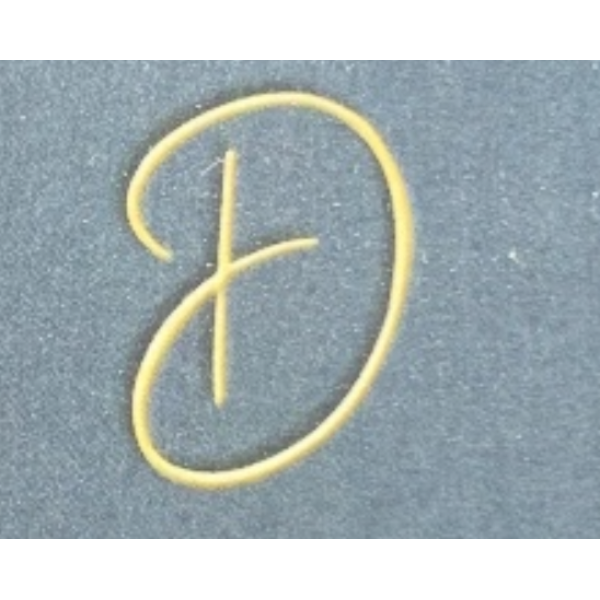Block Paving in Christchurch
Welcome to Mountbank Developments, your premier choice for all building and refurbishment needs in New Milton and across Hampshire. As a... read more »
Welcome to DPB Construction Ltd, your trusted partner for all construction needs in Turlin Moor and throughou... read more »
Welcome to... read more »
Marshall Original Paving Ltd is a re... read more »
Welcome to MB Paving Ltd, your trusted partner for al... read more »
Red Construction: Premier Landscaping and Blo... read more »
Welcome to Generation Builders & Landscape, your prem... read more »
Welcome to Urban Projects, your premier choice for ex... read more »
M.B.S Building Landscaping is your g... read more »
Welcome to GF Groundworks, your premier choice for ex... read more »
Seed 2 Tree Construction is a premie... read more »
Welcome to The Kraken Group Ltd, your premier choice... read more »
Welcome to GW Build, your premier choice for builders... read more »
Welcome to BRW Roofing And Maintenance Ltd, your trus... read more »
Welcome to CTGW & Landscaping, your go-to experts for... read more »
S.R.Jenn Services is a premier choic... read more »
Elite Paving Solutions: Leading Driveway and... read more »
Welcome to Four Groundwork’s And Landscaping, your... read more »
Search Block Paving in places nearby
Understanding Block Paving in Christchurch
Block paving in Christchurch is a popular choice for homeowners and businesses looking to enhance the aesthetic appeal and functionality of their outdoor spaces. This versatile paving solution offers a range of benefits, from durability to design flexibility, making it a preferred option for driveways, patios, and pathways. In this article, we'll explore the various aspects of block paving, providing insights into its advantages, installation process, maintenance, and more.
The Appeal of Block Paving
Block paving is renowned for its visual appeal and practicality. It consists of individual blocks or bricks laid in patterns to create a hard-wearing surface. The charm of block paving lies in its ability to blend seamlessly with the surrounding environment, offering a timeless look that complements both traditional and modern architecture. Whether you're aiming for a rustic feel or a sleek, contemporary design, block paving can be tailored to suit your preferences.
Durability and Longevity
One of the standout features of block paving is its durability. Made from materials such as concrete, clay, or natural stone, these blocks are designed to withstand heavy loads and harsh weather conditions. When properly installed, block paving can last for decades, making it a cost-effective investment for property owners in Christchurch. Its robust nature ensures that it remains intact even under the pressure of vehicles and foot traffic.
Design Flexibility
Block paving offers unparalleled design flexibility. With a wide range of colours, shapes, and sizes available, you can create intricate patterns and designs that reflect your personal style. From herringbone and basketweave to stretcher bond and circular patterns, the possibilities are endless. This flexibility allows you to customise your outdoor space, adding a unique touch that sets your property apart.
The Installation Process
Installing block paving requires careful planning and execution to ensure a flawless finish. While it is possible to undertake this as a DIY project, hiring a professional installer in Christchurch is recommended for optimal results. Here's a step-by-step overview of the installation process:
Site Preparation
The first step in block paving installation is site preparation. This involves clearing the area of any debris, vegetation, or existing surfaces. The ground is then excavated to the required depth, ensuring a stable foundation for the paving. Proper drainage is also considered at this stage to prevent water accumulation.
Sub-base Installation
A sub-base layer is crucial for the stability of block paving. Typically composed of crushed stone or gravel, this layer is compacted to provide a solid base. The thickness of the sub-base depends on the intended use of the paved area, with driveways requiring a thicker layer than patios or pathways.
Edge Restraints and Sand Bedding
Edge restraints are installed to keep the blocks in place and maintain the integrity of the paving. These can be made from concrete, metal, or plastic. Once the edge restraints are in place, a layer of sharp sand is spread over the sub-base. This sand bedding acts as a cushion for the blocks and allows for minor adjustments during installation.
Laying the Blocks
The blocks are then laid in the desired pattern, starting from one corner and working systematically across the area. Care is taken to ensure even spacing and alignment. A rubber mallet is used to gently tap the blocks into place, ensuring a snug fit.
Jointing and Compaction
After the blocks are laid, kiln-dried sand is brushed into the joints to lock them in place. This sand provides stability and prevents weed growth. The entire surface is then compacted using a plate compactor, ensuring the blocks are firmly set and level.
Maintaining Your Block Paving
Proper maintenance is key to preserving the appearance and functionality of block paving. Regular cleaning and upkeep can prevent common issues such as weed growth, staining, and shifting. Here are some maintenance tips for block paving in Christchurch:
Regular Cleaning
Regular cleaning is essential to keep your block paving looking its best. Sweep the surface to remove debris and leaves, and use a pressure washer to remove dirt and grime. Be cautious with the pressure setting to avoid dislodging the sand between the joints.
Weed and Moss Control
Weeds and moss can detract from the appearance of block paving. To prevent their growth, apply a weed killer or moss treatment as needed. Regularly inspect the joints and remove any unwanted vegetation promptly.
Re-sanding and Sealing
Over time, the sand between the joints may erode, leading to instability. Re-sanding the joints periodically can help maintain the integrity of the paving. Additionally, applying a sealant can protect the surface from stains and enhance its colour.
Repairing Damaged Areas
If any blocks become damaged or dislodged, it's important to address the issue promptly. Remove the affected blocks, clean the area, and replace them with new ones. This ensures the longevity and safety of the paved surface.
Choosing the Right Materials
Selecting the appropriate materials for block paving is crucial for achieving the desired look and performance. In Christchurch, various options are available, each with its own set of characteristics and benefits.
Concrete Blocks
Concrete blocks are a popular choice due to their affordability and versatility. They come in a wide range of colours and finishes, allowing for creative designs. Concrete blocks are durable and can withstand heavy loads, making them suitable for driveways and commercial areas.
Clay Pavers
Clay pavers offer a natural, earthy appearance that adds warmth to outdoor spaces. They are known for their rich colours and resistance to fading. Clay pavers are ideal for creating a traditional or rustic look and are often used in garden paths and patios.
Natural Stone
Natural stone blocks, such as granite, sandstone, and limestone, provide a luxurious and timeless appeal. Each stone has unique textures and colours, adding character to the paving. While natural stone is more expensive, its durability and aesthetic value make it a worthwhile investment.
Permeable Paving
Permeable paving is an eco-friendly option that allows water to drain through the surface, reducing runoff and promoting groundwater recharge. This type of paving is particularly beneficial in areas prone to flooding or with strict environmental regulations.
Environmental Considerations
As environmental awareness grows, many homeowners in Christchurch are seeking sustainable paving solutions. Block paving can be environmentally friendly when certain practices are adopted.
Recycled Materials
Using recycled materials for block paving is an excellent way to reduce environmental impact. Recycled concrete or reclaimed bricks can be used to create a unique and sustainable surface.
Permeable Designs
Incorporating permeable designs into block paving helps manage stormwater and reduce the risk of flooding. Permeable paving systems allow rainwater to filter through the surface, replenishing groundwater and reducing strain on drainage systems.
Local Sourcing
Choosing locally sourced materials for block paving reduces the carbon footprint associated with transportation. Local materials are often more sustainable and support the local economy.
Eco-friendly Sealants
Opting for eco-friendly sealants can minimise the environmental impact of block paving. These sealants are made from natural ingredients and are free from harmful chemicals, ensuring a safer environment for both people and wildlife.
Cost Considerations
The cost of block paving in Christchurch can vary depending on several factors, including the choice of materials, the size of the area, and the complexity of the design. Understanding these cost considerations can help you plan your project effectively.
Material Costs
The type of material you choose for block paving will significantly impact the overall cost. Concrete blocks are generally the most affordable option, while natural stone tends to be more expensive. Consider your budget and desired aesthetic when selecting materials.
Labour Costs
Hiring a professional installer will incur labour costs, which can vary based on the complexity of the project and the experience of the contractor. While DIY installation may save money, professional installation ensures a high-quality finish and long-lasting results.
Additional Features
Incorporating additional features, such as decorative borders, lighting, or drainage systems, can increase the cost of block paving. These features enhance the functionality and appearance of the paved area but should be factored into the budget.
Maintenance Costs
Ongoing maintenance is essential to preserve the quality of block paving. While maintenance costs are generally low, budgeting for periodic cleaning, re-sanding, and sealing is advisable to ensure the longevity of the paving.
Frequently Asked Questions
What is the best material for block paving?
The best material for block paving depends on your specific needs and preferences. Concrete blocks are versatile and affordable, while clay pavers offer a natural look. Natural stone provides a luxurious finish, and permeable paving is eco-friendly.
How long does block paving last?
With proper installation and maintenance, block paving can last for several decades. The durability of the paving depends on the quality of the materials used and the level of care it receives.
Can block paving be installed on a slope?
Yes, block paving can be installed on a slope, but it requires careful planning and execution. Proper drainage and edge restraints are essential to prevent shifting and ensure stability.
Is block paving environmentally friendly?
Block paving can be environmentally friendly when sustainable practices are adopted. Using recycled materials, permeable designs, and eco-friendly sealants can reduce its environmental impact.
How often should block paving be sealed?
Block paving should be sealed every 2-3 years to protect the surface from stains and enhance its appearance. Regular sealing helps maintain the integrity of the paving and prolongs its lifespan.
What is the cost of block paving in Christchurch?
The cost of block paving in Christchurch varies based on factors such as material choice, area size, and design complexity. On average, prices range from £50 to £100 per square metre, including materials and labour.
In conclusion, block paving in Christchurch offers a versatile and durable solution for enhancing outdoor spaces. With a range of materials and designs to choose from, it provides endless possibilities for creating functional and aesthetically pleasing surfaces. By understanding the installation process, maintenance requirements, and cost considerations, you can make informed decisions and enjoy the benefits of block paving for years to come.





